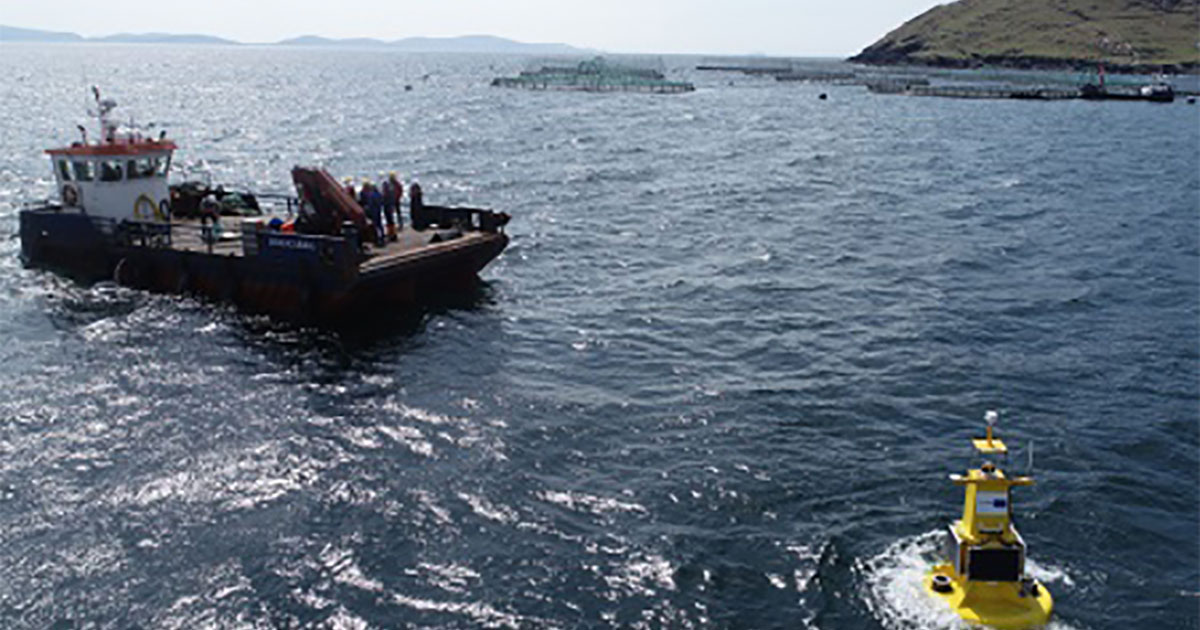Extreme marine events, such as marine heat waves, are increasingly threatening to degrade ocean ecosystems, seafood security with potential devastating consequences to aquatic related businesses.
In order to prepare for such events the Marine Institute, with colleagues in the Horizon 2020 Innovation Action EuroSea project, developed a new marine observatory specifically designed to address the needs of the aquaculture sector.
Frequent end-user interaction was essential from the beginning of the project to ensure the service was in agreement with the needs of the industry. The observatory web platform provides an early warning system that can be accessed at https://eurosea.marine.ie with a helpdesk service for end-users to provide suggestions or comments on their user experience.
This observatory integrates data from multiple ocean observing platforms (in situ databuoys; satellites; numerical models) and provides easy access to information about the oceanographic processes affecting the fish farm facilities and its neighboring waters.
During the EuroSea project, two oceanographic moorings with sensors developed by Xylem were deployed at the pilot sites in Deenish Island (Co. Kerry) and El Campello (Spain). For the Irish site, satellite observations of ocean color and sea surface temperature are provided together with information on the occurrence of Marine Heat Waves.
The web portal also provides access to sea surface temperature historical data, starting from 1982, for any site within the Irish Exclusive Economic Zone (EEZ) selected by the user in an interactive application. Modelled forecasts (e.g., water temperature, significant wave heights) are linked to the warning system for the EuroSea demonstration sites with a facility for end-users to receive notifications on their phone. The thresholds that trigger these warnings were agreed with the end-users when the system was developed.
Finally, Best Practice guidelines were developed for other partners around the world who plan to develop similar marine observatories. As such, the software is open-access and a scientific paper (DOI: 10.3389/fmars.2023.1288610) was recently published in Frontiers in Marine Science.



